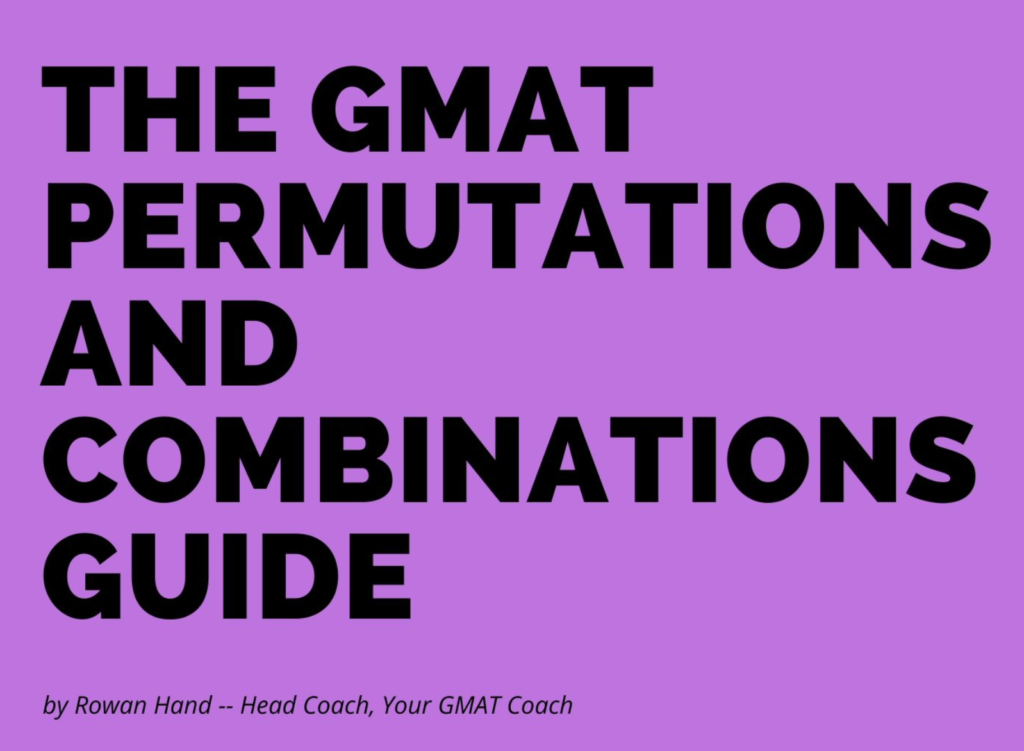Here’s a simple solution to the classic “For a certain race, 3 teams were allowed to enter 3 members each” GMAT question.
First, let’s look at the question text so you know what we’re talking about:
For a certain race, 3 teams were allowed to enter 3 members each. A team earned 6 – n points whenever one of its members finished in nth place, where 1 ≤ n ≤ 5. There were no ties, disqualifications, or withdrawals. If no team earned more than 6 points, what is the least possible score a team could have earned?
A. 0
B. 1
C. 2
D. 3
E. 4
This is widely known as a corker of a question: it’s a truly mind-bending task to have to do in two minutes.
I’m not going to downplay the difficulty here: if you’re not used to questions of this sort, this iteration will invariably be a bit of a nightmare and you might guess it correctly out of (mostly) sheer luck even if you identify it properly as a min-max question. In fact, that’s what I did the first time I encountered this question.
Digging in, however, we can see how it might relate to other min-max questions with relative ease.
Let’s start by examining the information that the question is actually providing to us in the first place:
>we have three teams with three members apiece, which means 3 x 3 = 9 players total
>there are five places presented to us; the score for a given place is presented as 6 – n for nth place. That is, if someone lands in 5th place, they get a score of 6 – 5 = 1. If this person lands in 4th place, they get a score of 6 – 4 = 2, and so forth.
>This implies that the possible scores are 1, 2, 3, 4, and 5
>We are told that the maximum amount that one team can score is 6:
The ways to achieve a score of 6 are these:
>1,2,3
>1,5,0
>2,4,0
That’s actually it! There are no other ways that one could achieve a score of 6.
>We want the minimum possible score for one team, which implies that the other two teams achieve the maximum score.
Therefore, it becomes really important to know how we can get those scores of 6. Let’s look at the different opportunities:
If we choose 1,2,3 as our first possibility, the other scores remaining are 4 and 5. This doesn’t, of course, maximize these scores. That is, if we have the second team score 4,0,0, the third team must score 5,0,0 and vice-versa.
If we choose 1,5,0 as our first possibility, we can get another team to score 6 as well if the second team scores 2,4,0 (or vice-versa). This would leave the third team with 3,0,0.
Now we could rearrange the second two teams, getting let’s say 2,3,0 for the second, which would leave 4,0,0 for the third. A team score of 4 is of course greater than a team score of 3.
You can rearrange the options, but you’ll ultimately find that the lowest one team can achieve is a total of 3 by getting a score of 3,0,0.
Therefore, the answer to for a certain race, 3 teams is D.
Check out the video solution here…
A little note…
It is not actually possible to achieve a score of 0,0,0 under the conditions given, despite this looking like a tempting answer and fooling people who really ought to know better on a forum that doesn’t need the backlink here.
Just try it: if you make one of these scores 0,0,0, you’ll have the other scores squashed into the other two groups, which will break the limit of maximum score 6. This is clear because now we have to work really hard to minimize each o.f the second two cases. You’ll end up with something like this: 0,0,0; 1,2,3; 4,5,0. The third group clearly breaks the limit here.
You can try different permutations of this, but you’ll always find the same thing: for a certain race, 3 teams is an ugly questions, isn’t it? But it’s well put together.
Remember, Official GMAT questions don’t tend to have problems like this, particularly when it comes to the math working or not working.
Official GMAT questions go through tremendous amounts of development and testing, and—for that matter—question that has been on GMATClub for 14 years would have seen someone point out that error sooner than 2022.
That said, if you’re getting your questions from third-party suppliers, particularly those that start with E (you know who you are), your mileage will most certainly vary. Remember, kids: stick to Official GMAT questions to avoid disappointment.






